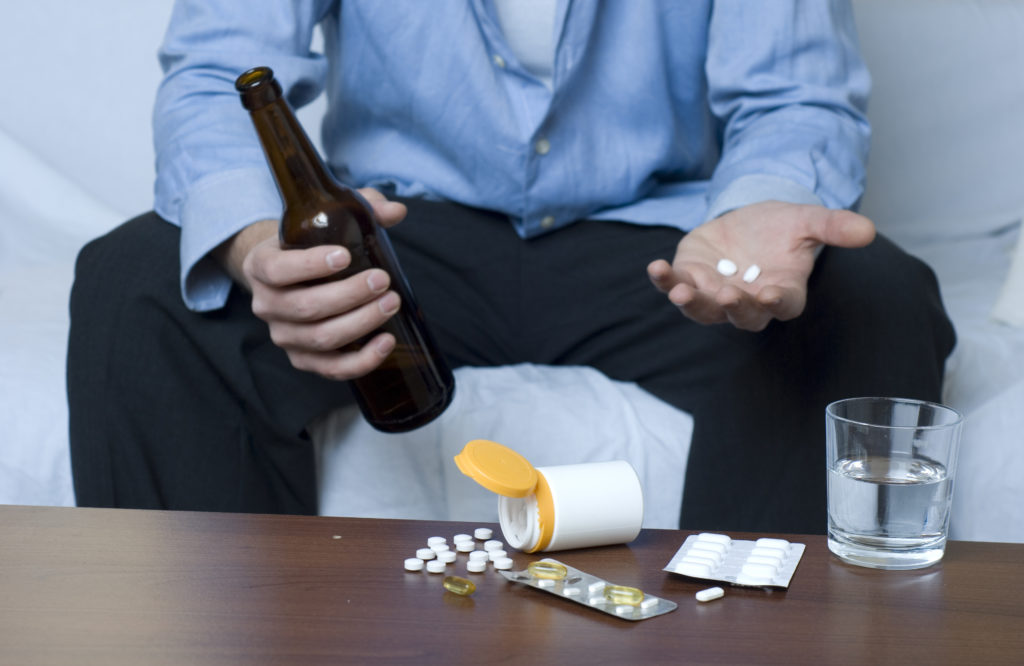How PTSD and Substance Abuse Are Related

Post-traumatic stress disorder (PTSD) and substance abuse are one of the most common dual diagnoses. Many of the symptoms of PTSD will drive a person to look for a way to regain control over their emotions and their life. Some people turn to drugs or alcohol for that relief, believing it will help them feel in control again or can help to numb the pain or forget the traumatic situation that is now causing them stress. PTSD and substance abuse are closely linked and one cannot be treated without treating the other. Here’s what you need to know about PTSD and substance abuse:
What Is PTSD?
Post-traumatic stress disorder is a condition that often occurs with individuals that have been through a traumatic event. This can be a single traumatic event or a series of events. For example, many individuals who have been in active military combat will experience PTSD. Some individuals might even have PTSD after a car accident, a home invasion, or even after a destructive natural disaster like a hurricane. What causes the disorder will vary from person to person. Some people will go through a traumatic event and never experience PTSD, while others will experience PTSD even after something that most other people will not find particularly traumatic. Some of the most common causes include military service, assault, childhood abuse, sexual assault, and natural disasters.
The symptoms of PTSD often include nightmares and flashbacks about the incident. If someone has unresolved crises, the mind will return to these situations again and again. The memories could arrive out of nowhere, but they can also be triggered. For example, a combat veteran might have PTSD triggered by loud noises, like gunfire or fireworks. This is actually the mind’s way of trying to work through these situations. By flashing back, the mind is trying to find a way to resolve the trauma, instead of continuing to live with the stress that the trauma has caused.
Other symptoms of PTSD include depression, attention disorders, pain, sleeplessness, anxiety, outbursts, and aggressive behavior. These symptoms might rear their ugly heads at any time. They are usually separated into three categories, ranging from experiencing the event again and again, avoiding the event, and hyperarousal (meaning that the mind and body are overwhelmed with stimuli).
Why Is Substance Abuse So Common with PTSD
Alcoholism or abuse of other substances is common in individuals who have PTSD because of the symptoms of PTSD. Reliving a traumatic experience over and over again, as well as the anxiety and stress that comes along with those flashbacks, can quickly become overwhelming. Many of the people who experience PTSD are reluctant to get the help that they need, either because they believe they should be able to deal with the trauma on their own or because they simply do not have the resources to get mental health assistance.
Instead, they discover that they can drink alcohol or use drugs and they will not have to experience the anxiety or flashbacks when they are high or drunk. Alcohol is especially effective, because it is a depressant. It works, in the short term, to allow the individual to forget their trauma and to avoid dealing with the pain and anxiety that it has created. Because it is a depressant, however, it actually worsens those symptoms over time. It makes it difficult to sleep normally and intensifies anxiety. In turn, the person begins to drink more and more. They might have been drinking safely in the beginning, but now they will be drinking far too much. When they are under the influence they are more likely to engage in dangerous behaviors, ranking from driving while under the influence or getting in altercations with other people.
Substance abuse is common because it seems like an easy way to deal with the issues that PTSD creates. It might even start subtly, a person using once and a while to suppress negative feelings that they might not even connect to their use of drugs or drinking to the traumatic event. Even when the issue becomes serious, they might not tie the two things together.
Only when a person understands why they are using can they start to treat the problem. An individual with PTSD is not going to be able to lead a healthy life. Both the substance abuse and the PTSD have to be treated in order to allow someone to be happy and mentally healthy again.
How Are PTSD and Substance Abuse Treated
A person who is suffering from both PTSD and substance abuse will need a comprehensive treatment that is effective on both issues. Primarily, they will need support from a psychiatric professional, along with their family and their friends. Individuals who have PTSD might be reluctant to seek out treatment. Often, people have feelings of guilt or shame that are connected to the traumatic event that is the cause of the PTSD. They do not want to tell anyone about the event and therefore avoid any treatment options that require them to discuss it, despite the fact that their addiction is only adding to the guilt and shame.
How this is treated will vary from person to person. Some might choose to enter a treatment facility, while others will simply want to meet with a mental health professional who can help them work through their unresolved issues and find a much healthier way to deal with their trauma.
There is no shame in asking for support if you are struggling with issues related to substance abuse and the symptoms of PTSD. In time, and with the right support, you are going to feel better and have the tools to get through each day, one day at a time.
Leave a Reply